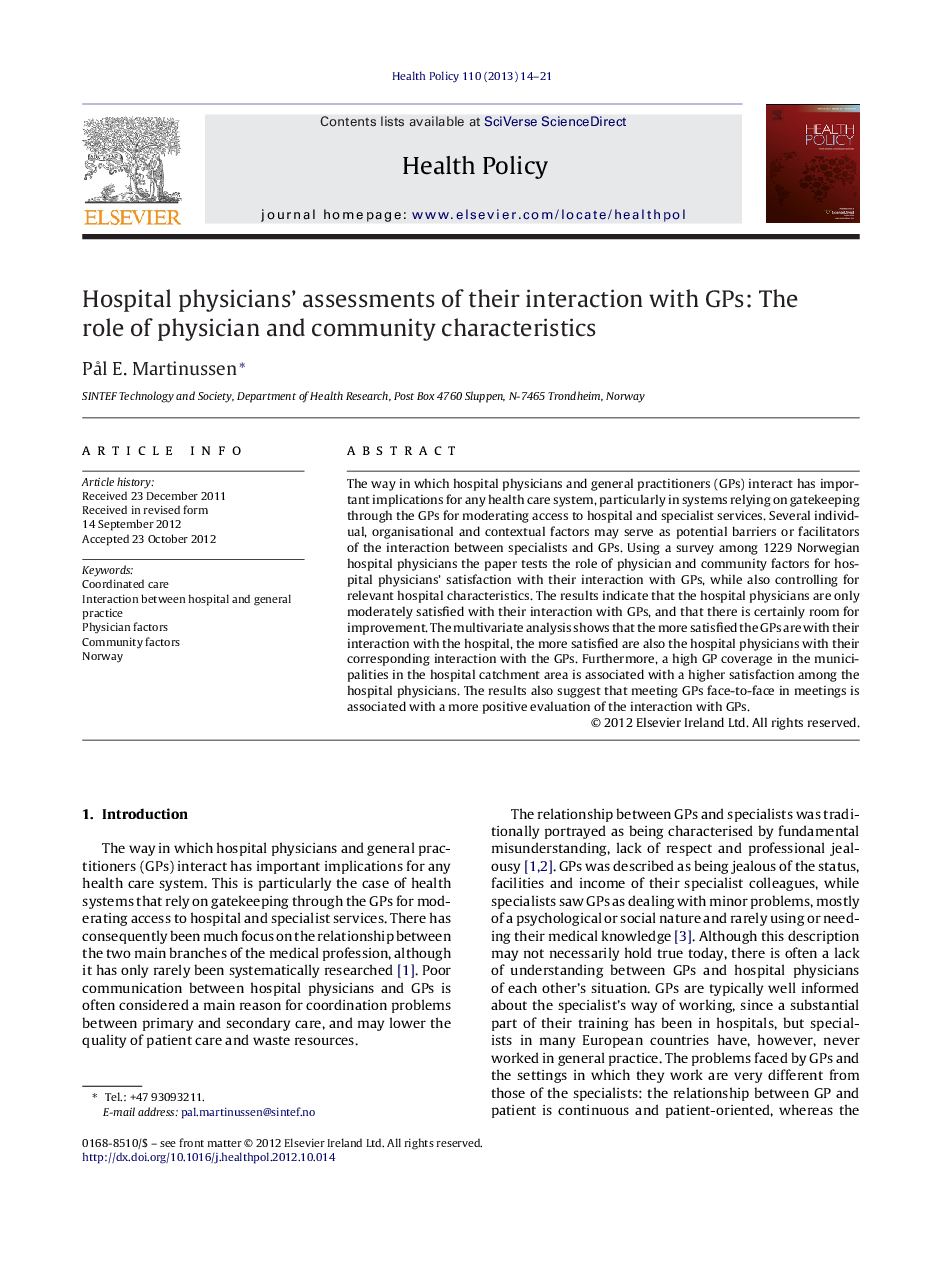| Article ID | Journal | Published Year | Pages | File Type |
|---|---|---|---|---|
| 6239975 | Health Policy | 2013 | 8 Pages |
The way in which hospital physicians and general practitioners (GPs) interact has important implications for any health care system, particularly in systems relying on gatekeeping through the GPs for moderating access to hospital and specialist services. Several individual, organisational and contextual factors may serve as potential barriers or facilitators of the interaction between specialists and GPs. Using a survey among 1229 Norwegian hospital physicians the paper tests the role of physician and community factors for hospital physicians' satisfaction with their interaction with GPs, while also controlling for relevant hospital characteristics. The results indicate that the hospital physicians are only moderately satisfied with their interaction with GPs, and that there is certainly room for improvement. The multivariate analysis shows that the more satisfied the GPs are with their interaction with the hospital, the more satisfied are also the hospital physicians with their corresponding interaction with the GPs. Furthermore, a high GP coverage in the municipalities in the hospital catchment area is associated with a higher satisfaction among the hospital physicians. The results also suggest that meeting GPs face-to-face in meetings is associated with a more positive evaluation of the interaction with GPs.
⺠Norwegian hospital physicians are only moderately satisfied with their interaction with general practice. ⺠There is high correspondence between how GPs and hospital physicians view their interaction. ⺠Interaction between hospital physicians and GPs seems to improve when they meet face to face in forums discussing patient treatment. ⺠Interaction between hospital physicians and GPs also seems to improve with GP coverage in the municipalities that the hospital is serving.
